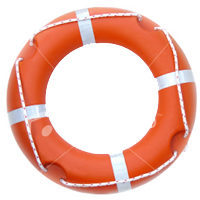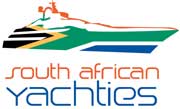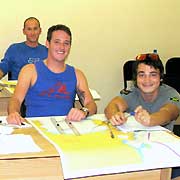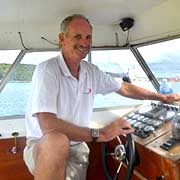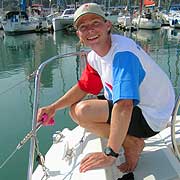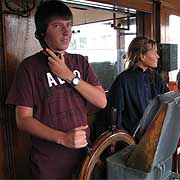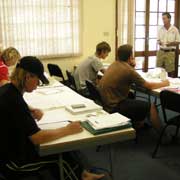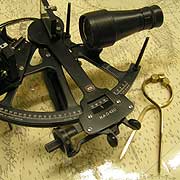Enquiry
IYT MASTER of YACHTS 200t LIMITED
IYT MOY 200t Limited
Qualifying experience:
1) Sea Time
a) 50 days on board a vessel greater than 9m at sea as an active crewmember. For the purpose of this requirement, a day is defined as a period of 24 consecutive hours. Part of a day may not be included in this total, but a day is not invalidated by a candidate leaving the yacht for a few hours during a cruise. The term "at sea" is defined as being on a vessel outside of any harbour - natural or artificial - in which a cruising yacht could secure or anchor for a prolonged period of time.
b) 3 000 nautical miles logged on a vessel at sea. This mileage must include overnight passages and not only short day trips. At least 2 000 miles must have been completed on coastal voyages and not ocean crossings.
c) Five varied passages with rhumb lines of over 60 miles, during two of which the candidate must have been undertaking the duties of captain or watchkeeper.
d) 30 hours on watch at night underway as an active member of a yacht's crew. For at least six hours of this night time experience the candidate must have been acting as the vessel's captain/watch leader. "Night" in this context is defined as the time between sunset and sunrise.
2) Medical
A valid Seaman's Medical Certificate
3) STCW
Valid certificates for the five elements of basic safety training:
- PSSR
- PST
- Fire Prevention and Fire Fighting
- Elementary First Aid
- Competence in Security Awareness
4) Identification
Passport or national identity document to confirm identity. Copies must be certified.
The course is in two stand-alone parts which should ideally, but not necessarily, be taken consecutively.
Please note:
As from August 1, 2016 the following revised seatime requirements will apply.
- 3.000nm required where 1.500 must be on a vessel <24m
- Plus 6 passages >60nm as master
OR
if the candidate holds the IYT Master of Yachts Coastal/Mate 200 tons:
- Only an additional 1.500nm required 50% (750nm) must be on a vessel <24m
- 3 additional passages >60nm as master
- 2 nights of the 5 day practical must be conducted underway, not at anchor.
Theory: an intensive six and a half-days in the classroom. Five subjects are covered, each culminating in a written examination which must be passed in order for a certificate to be issued.
- Collision regulations
- Meteorology
- Tides and Currents
- Navigation and Chartwork
- Business and maritime Law
Collision Regulations. It is assumed that candidates have acquired a working knowledge of the IRPCS as a result of their watchkeeping experience and this knowledge is built on in the course. Prospective candidates must ensure that their prior knowledge includes at least a basic understanding of collision avoidance as well as the buoyage, sound signals and flags in common use. The pass mark for this exam is 90%.
Meteorology. No prior knowledge is required for this stand-alone module. Pass mark 70%.
Tides and Currents. Another stand-alone module with a 70% pass mark. This module does however require that the candidate is capable of basic mathematical calculations including adding and subtracting of time.
Navigation and Chartwork. A basic understanding of coastal navigation is required for this module. It is assumed that candidates have some prior knowledge of:
- Conversion of compass bearings to true and vise versa with allowance for both variation and deviation.
- Dead reckoning.
- Three bearing fix.
- Course to steer allowing for current and leeway.
- Estimated position with allowance for current and leeway.
Business and Maritime Law. An introduction to basic maritime law as it pertains to the yachting industry. This exam is in the open book format and requires a 70% pass mark.
Included in the theory programme is a half-day VHF Radio Communications module covering elementary telecommunication theory and correct radio procedures including distress communication. This module does NOT result in the issue of a VHF radio licence for which an external exam is required.
Practical: Five days on board, power or sail.
This part of the instruction requires that candidates have basic seamanship skills and are able to show that during their qualifying experience they have had practical exposure to at least the following:
- Nautical terminology
- Tides and currents
- Rope-work
- Anchors and anchoring
- Boat handling including docking
- Yacht presentation, general boating skills, customs and etiquette
- Weather
- Coastal navigation and passage planning
We can't teach you to sail or to drive a powerboat in the time available so this part of the course is intended to hone existing skills and allow candidates to get used to our vessels in preparation for the practical examination.
Practical Exam. This takes place as soon after the end of the practical instruction as the weather allows, usually the very next day but it must be noted that, as in all boating activities, the weather has the final say.
N.B. When making travel arrangements candidates should make allowance for the fact that there may be weather-related delays.
The practical exam is conducted by an independent IYT examiner and takes the form of an extensive oral evaluation and a test of practical skills on board. candidates should expect to be questioned on any aspect of yachting at this level including topics covered in both the theory and practical training as well as the knowledge acquired during their qualifying experience. The examiner is required to test the candidate's depth of knowledge and ability, not just whether they can regurgitate the course content. The fact that the theory exam has been passed does not mean that a particular subject cannot be re-visited during the oral assessment.
| Price List | |
| Product Name (Product Code) | Price |
| MASTER OF YACHTS 200T Limited (Theory & Practical) (IYT-MOY200t-LTD-T&P-002) | USD 3,025.00 |
| MASTER OF YACHTS 200T Limited (Theory Only) (IYT-MOY200t-LTD-T-003) | USD 1,175.00 |
| MASTER OF YACHTS 200T Limited (Practical Only) (IYT-MOY200t-LTD-P-004) | USD 1,850.00 |
| Course Dates | |||
| Please select the Start Date when making Enquiries / Bookings | |||
| Name | Dates | Year | Course Venue |
| MASTER OF YACHTS 200T Limited (Theory & Practical) (Durban) | 10 - 22 Jun | 2024 | Durban |
| 8 - 20 Jul | 2024 | Durban | |
| 5 - 17 Aug | 2024 | Durban | |
| 9 - 21 Sep | 2024 | Durban | |
| 7 - 19 Oct | 2024 | Durban | |
| 4 - 16 Nov | 2024 | Durban | |
| 2 - 14 Dec | 2024 | Durban | |
| MASTER OF YACHTS 200T Limited (Theory & Practical) (Cape Town) | 29 Jul - 10 Aug | 2024 | CAPE |
| MASTER OF YACHTS 200T Limited (Theory Only) (Durban) | 13 - 18 May | 2024 | Durban |
| 10 - 15 Jun | 2024 | Durban | |
| 8 - 13 Jul | 2024 | Durban | |
| 5 - 10 Aug | 2024 | Durban | |
| 9 - 14 Sep | 2024 | Durban | |
| 7 - 12 Oct | 2024 | Durban | |
| 4 - 9 Nov | 2024 | Durban | |
| 2 - 7 Dec | 2024 | Durban | |
| MASTER OF YACHTS 200T Limited (Theory Only) (Cape Town) | 29 July - 03 Aug | 2024 | Cape |
| MASTER OF YACHTS 200T Limited (Practical Only) (Durban) | 20 - 25 May | 2024 | Durban |
| 17 - 22 Jun | 2024 | Durban | |
| 15 - 20 Jul | 2024 | Durban | |
| 12 - 17 Aug | 2024 | Durban | |
| 16 - 21 Sep | 2024 | Durban | |
| 14 - 19 Oct | 2024 | Durban | |
| 11 - 16 Nov | 2024 | Durban | |
| 9 - 14 Dec | 2024 | Durban | |
| MASTER OF YACHTS 200T Limited (Practical Only) (Cape Town) | 5 - 10 Aug | 2024 | Cape |


